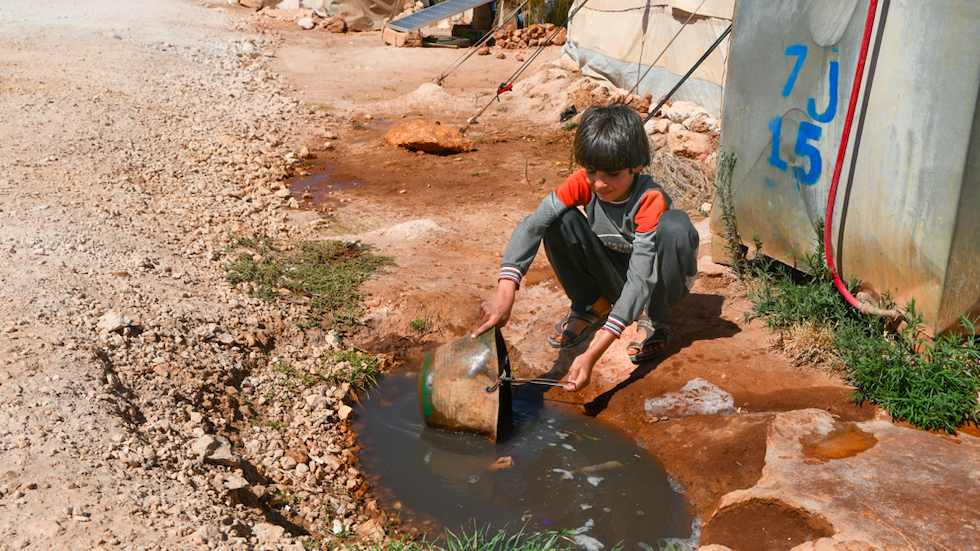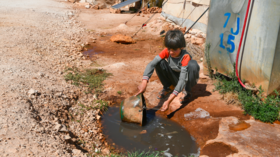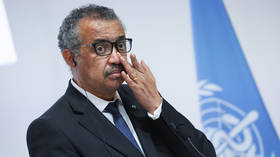
The water-borne infection can be fatal in up to 50% of untreated cases

Several cases of cholera were recorded in northwestern Syria, where pictures show pools of contaminated water in front of tents for the displaced in the town of Kafr Losin in Idlib governorate, northeastern Syria, on September 28, 2022. © Getty Images / Rami Alsayed/NurPhoto via Getty Images
Factors including economic crises, climate change and the fallout from the Covid-19 pandemic have led to the ideal circumstances for cholera to flourish in high-risk countries, the World Health Organization (WHO) has warned after noting a sharp surge of the illness in at least 30 countries.
The scale of the various outbreaks rose sharply in 2022 after several years of decline, the WHO said. Between January and October of last year, 29 countries reported cases of the disease, compared to 23 the year before – with those numbers set to rise in 2023.
“The number of countries with these large outbreaks occurring at the same time, we have not seen it in at least 20 years,” Philippe Barboza, the head of the WHO’s cholera emergencies response unit, told The Telegraph.
“Most of the major outbreaks we are looking at are all driven by major, unusual climate events,” he added, adding that southern African countries are particularly at risk as they face a third straight year of heavy rain and cyclones brought on by the La Nina weather phenomenon.

Read more
WHO director Tedros Adhanom Ghebreyesus said last year that the effects of climate change had “turbocharged” the impact of cholera.
Syria declared its first outbreak of the disease in 15 years last year, with the situation worsening following last month’s earthquakes. Lebanon is facing a similar problem for the first time in 30 years as it struggles to fight off the disease amid economic collapse.
Experts say that the problem has also been exacerbated by various countries’ health services being overwhelmed by Covid-19 cases, given that efforts to combat cholera outbreaks were paused throughout the pandemic.
“Cholera can be controlled, should be controlled,” Barboza explained. “It’s not that expensive, just to provide access to healthcare. It’s a basic human right.”
Cholera is a severe disease that is contracted by ingesting contaminated food or water. It can lead to death within hours if left untreated. Figures from the WHO state that around 143,000 die from the disease globally every year.




